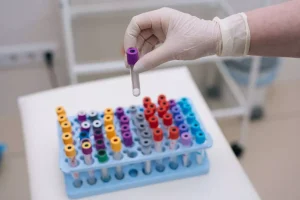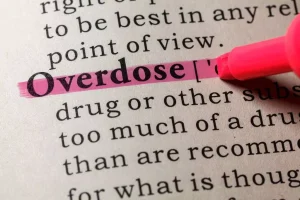
It can be harder to get symptoms to go away for type 2, and it may mean you need to treat it for the rest of your life. Also called “magic mushrooms,” these psychedelic drugs look just like ordinary mushrooms. It can cause ongoing problems with your vision, and come back again and again.
Living With Hallucinogen Persisting Perception Disorder
Of the remaining 222 studies, further 186 studies were excluded because they did not meet the inclusion criteria or because they were non-human studies. Finally, a total of 24 papers were included and accounted for in our analysis. Table 2 shows the main characteristics (study design, sample size, main outcomes, and findings) of all studies reviewed here. Drugs and Me recently posted a blog post concerning experiences with hppd treatment HPPD, symptoms to look out for, what can cause it, and how one might be able to avoid developing the disorder. In some cases, HPPD can also cause other symptoms, such as anxiety, depression, and depersonalization. Danny Fernandez talks about his own experience with visual snow, discussing how he has found ways to deal with his changing vision and his hopes for the future.
Figure 1. Anteroposterior and lateral views of chest X-ray and an MRI of the brain.
A month later, after cannabis use, the same visual and auditory distortions appeared again. During the following year, hallucinations recurred with the consumption of natural cannabinoids but not with alcohol intake. Surprisingly, both other cases belonging to HPDD type II appeared in patients who consumed ecstasy, although MDMA is generally not considered a hallucinogen and hallucinations are not frequently reported after MDMA consumption.

Characteristics of Included Studies
Treatment includes medication, talk therapy, and reducing anxiety and stress, which can exacerbate symptoms and may be implicated in the origin of HPPD in some users of psychedelic drugs. Hallucinogen persisting perception disorder (HPPD) is a rare condition that can affect individuals who have used hallucinogenic drugs. It can lead to ongoing visual disturbances and perceptual changes even when the drug has worn off. While the exact causes of HPPD are not fully understood, it is believed to result from alterations in brain function triggered by hallucinogen use. If you are experiencing persistent visual disturbances after using hallucinogens, it’s important to seek medical help for proper evaluation and management.
How to Differentiate Between Bipolar Disorder and Hallucinogen Persisting Perception Disorder
- They do not relive any other aspects of a drug trip, only the part that involved vision.
- There is no universal cure for HPPD, but treatments can help reduce symptoms and improve quality of life.
- Second, methodological strategies (sample size, study design, diagnostic criteria, etc.) may vary greatly in several studies retrieved.
- These symptoms may appear during intoxication or withdrawal from substances such as stimulants, alcohol, or hallucinogens.
DSM-5 and previous DSM editions report a list of Substance abuse the most common symptoms experienced by HPPD patients, but only a few symptoms have been described in the professional literature. The main group of symptoms reported by Criterion A of the DSM-5 are visual disturbances. In fact, as in the vast majority of induced psychoses, visual hallucinations are notably more common than auditory 3. Regardless, every perceptual symptom that was experienced during intoxication may re-occur following hallucinogen withdrawal. We report a list of the main literature-reported visual disturbances in Table 2. Hallucinogen Persisting Perception Disorder (HPPD) is a neurological condition that develops following the use of hallucinogenic substances such as LSD, psilocybin (commonly known as magic mushrooms), or MDMA (ecstasy).
What is Hallucinogen Persisting Perception Disorder?

Although its main focus is on changes in perception and consciousness in HPPD, the current study may also have several implications for our ideas on pathophysiology. That said, there is little doubt that it depends on central rather than peripheral mechanisms. Although studies in the field of ophthalmology indicate that visual distortions such as dysmorphopsia (where lines and contours of objects are perceived as wavy) may also have peripheral causes, it is unlikely that HPPD originates from the retina.

